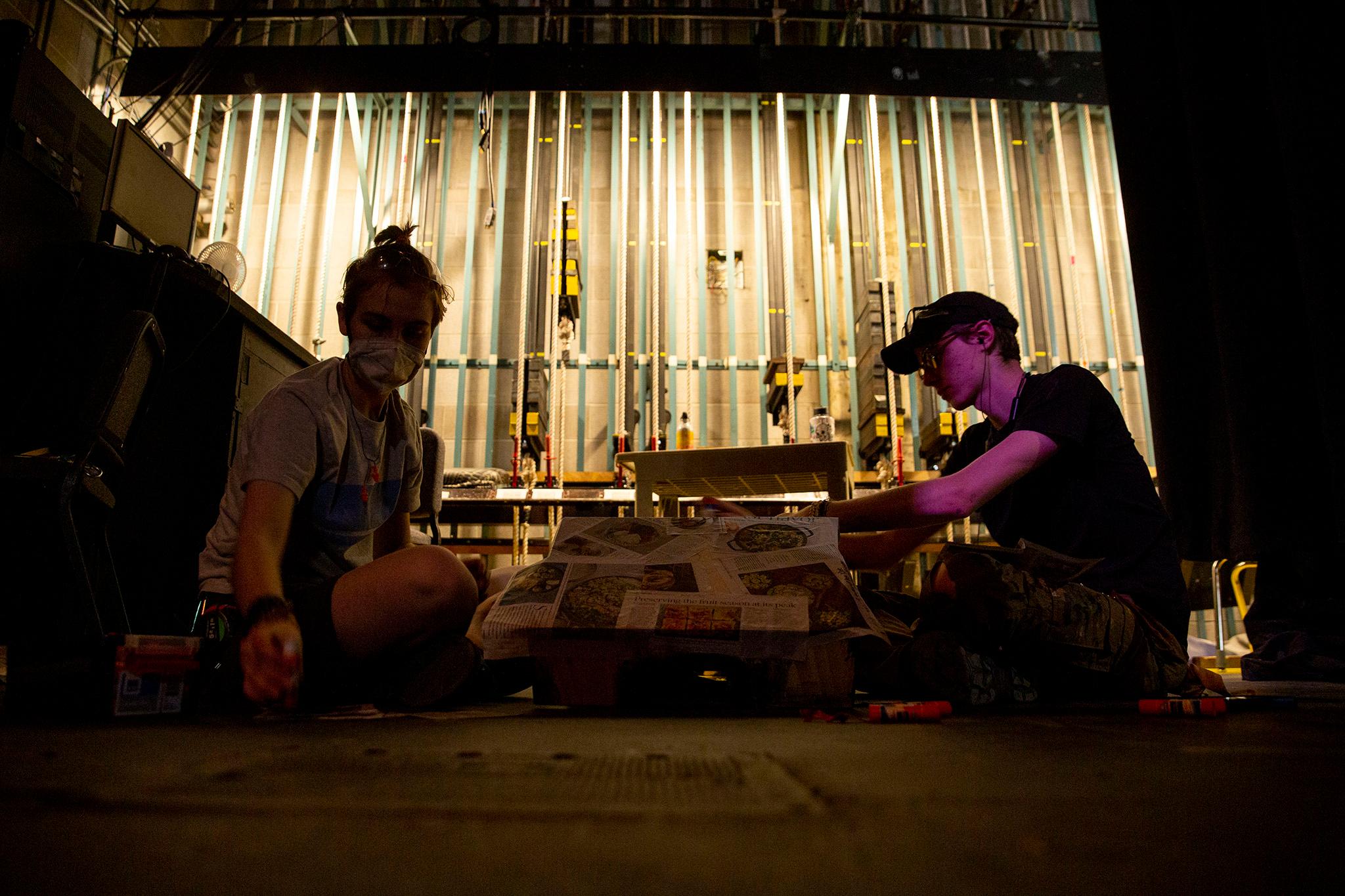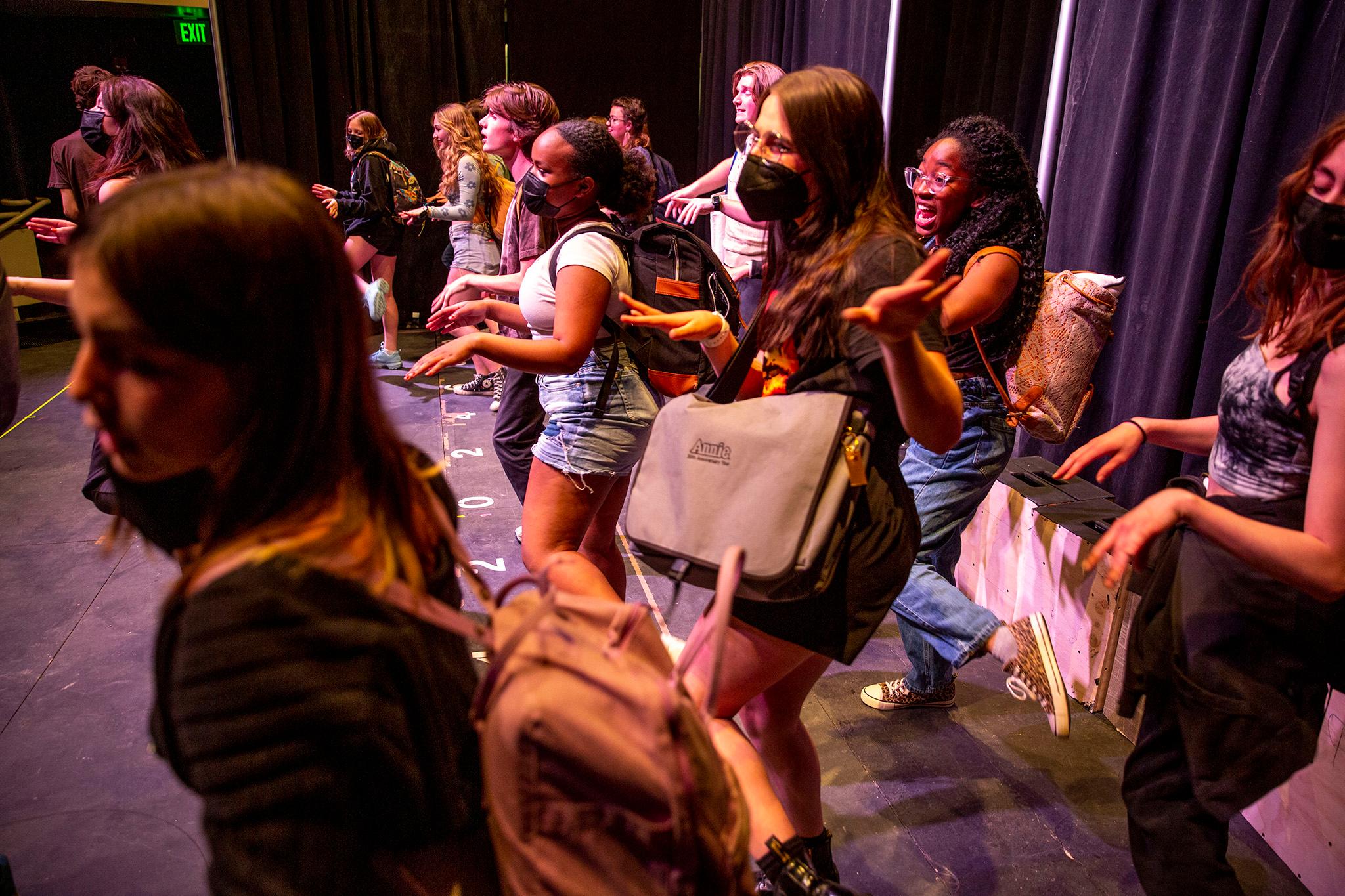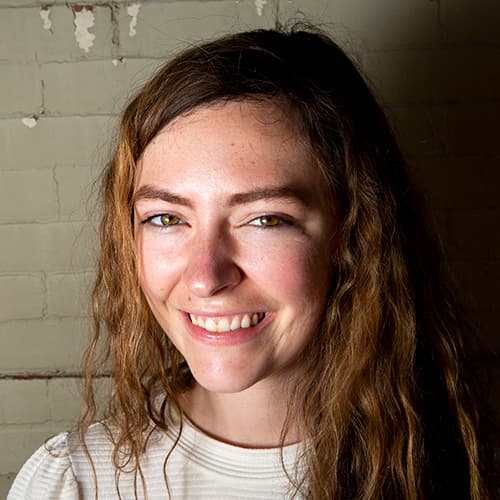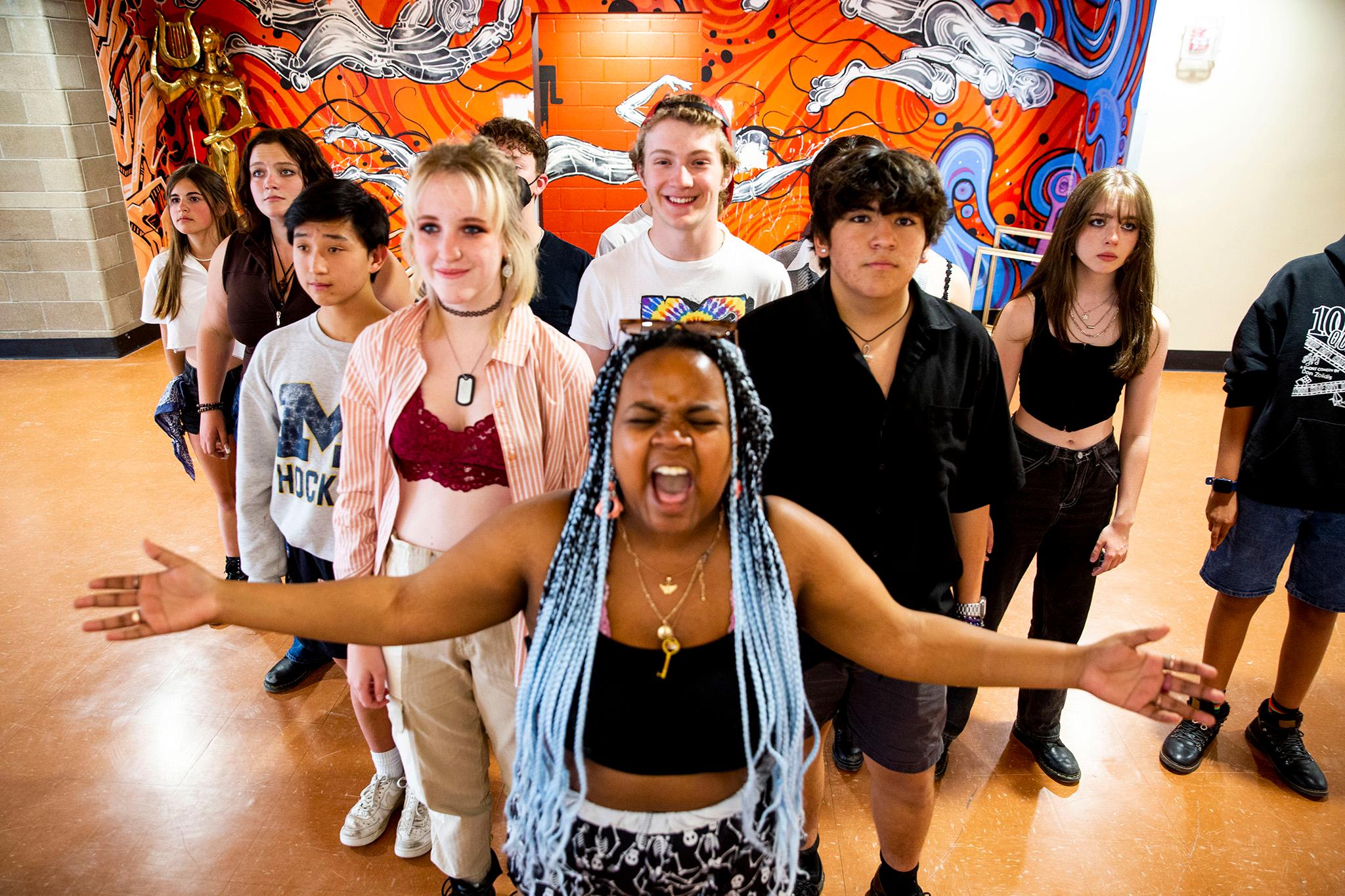In 2002, Denver School of the Arts' (DSA) theatre and stagecraft department was invited to perform at Edinburgh Festival Fringe, the world's largest arts festival. Every year, thousands of artists and groups from all over the world flock to Scotland for the festival, performing across hundreds of stages, sometimes in unconventional venues. There's an element of discovery to the experience, which facilitates opportunities for audience members to stumble upon something surprising and different, and possibly even the next big thing (Phoebe Waller-Bridge's Fleabag debuted as a one-woman show at the festival in 2013).
DSA's Director of Theatre, Shawn Hann, said that that first Fringe field trip impressed on her the value of exposing students to these diverse performances.
"When I saw how much the students took away from the experience, from learning how to travel a show, but also seeing world theater," she said.
She remarked at how they got to see shows like Macbeth performed on stilts on a patch of grass, and a troupe from Poland doing a piece about the apocalypse.
"It's really a neat situation for them to see that theater doesn't necessarily mean it's a play. It can be a dance, a physical theater movement piece," she said.
That first year, she remembers, at that show about the apocalypse, she and her students stood watching the performance, unable to understand a single word because it was entirely in Polish.
"But a student was next to me, and, halfway through the show, she looked at me, she goes, 'They blame us. They blame the Americans for the apocalypse,'" she said. "And it was just this light bulb, this bubble being shattered of what the world thinks about the Americans."
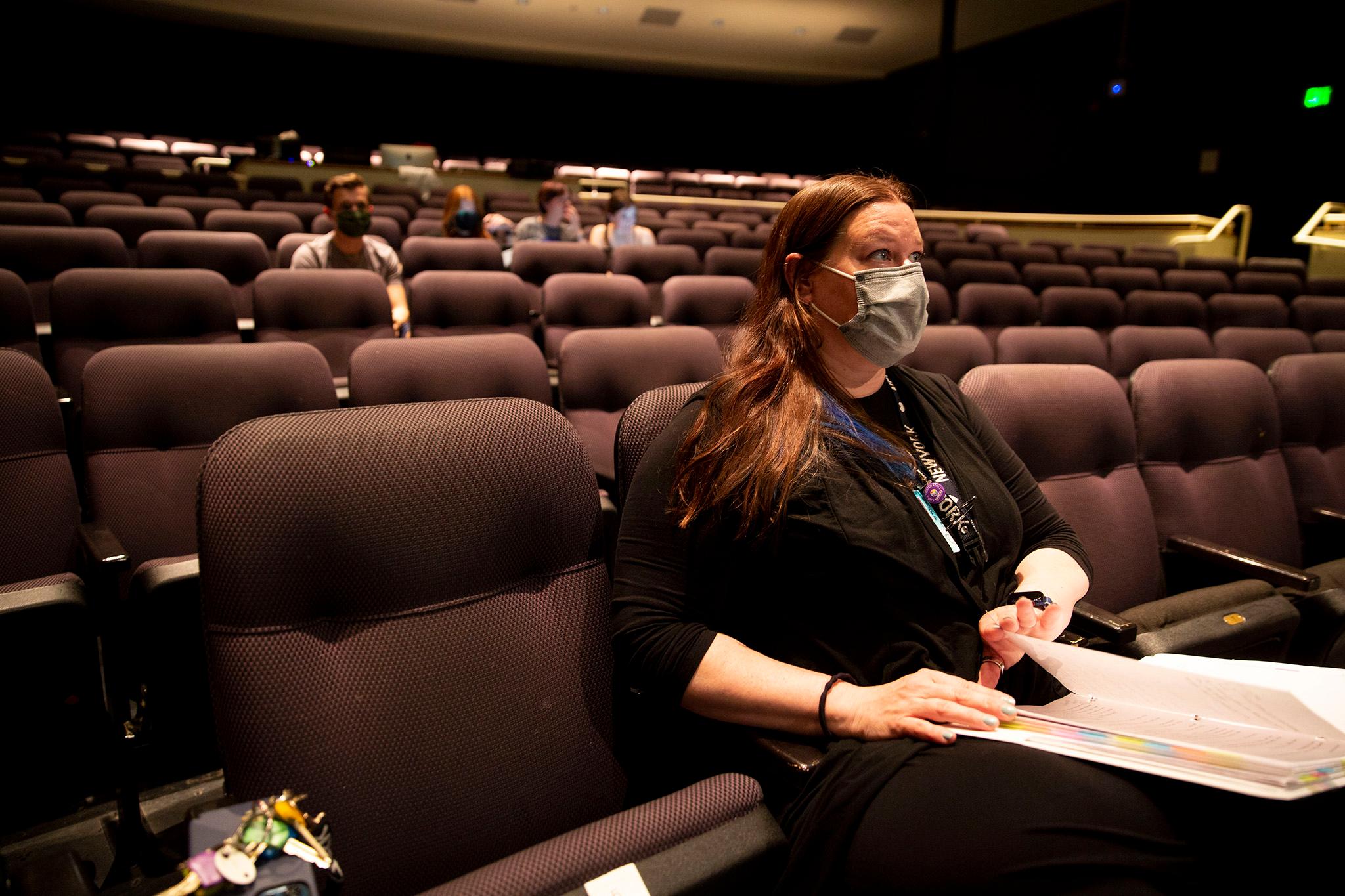

She realized how meaningful the experience could be for students, and decided to make it a tradition. Now, every four years, DSA students head to Scotland to put on a performance in the Festival Fringe. The students spend months rehearsing and fundraising for the trip.
The department was scheduled to make their next trip in 2020. Then, months into their preparations, COVID hit, and the trip was postponed indefinitely, meaning some graduating students missed their opportunity to go.
Now, current students are preparing for the first Fringe trip in more than six years, where they'll perform a student-devised work based on their experience during the pandemic. Called re:ACTION, the original musical explores some of the challenges DSA students have had to face in the last two years -- COVID, and the loneliness and isolation that came with it; racial injustice; gun violence in Colorado; homelessness; coming to terms with sexuality; and grief. All of it is told through the eyes of middle and high school students grappling with the ways in which we react to adversity, and how we recover from it.
"I'm excited, not for their bubbles to be shattered, but for them to see the world, and see how other people view us," Hann said.
Re:ACTION is built around How We React and How We Recover, a solo album by the American composer Jason Robert Brown, who wrote music for hit Broadway shows like 13 and The Last Five Years.
Hann came across the album on the radio one day, and it immediately stuck.
"He wrote all those songs based off of different events that have happened. So after Sandy Hook, he wrote 'A Song About Your Gun,'" Hann said. "And it just happened to land in my soul that this is how we're reacting and recovering from COVID. "
She started listening to the album every day, connecting these very individual songs into a larger story. She got into contact with Brown, and got the rights to use six of the songs in an original, 60-minute show. From there, Hann put together a loose outline for a DSA Fringe show based on her students' COVID experiences and brought together a group of student writers to fill in the gaps, fleshing out the play with their collective memories and reflections from living through the pandemic.
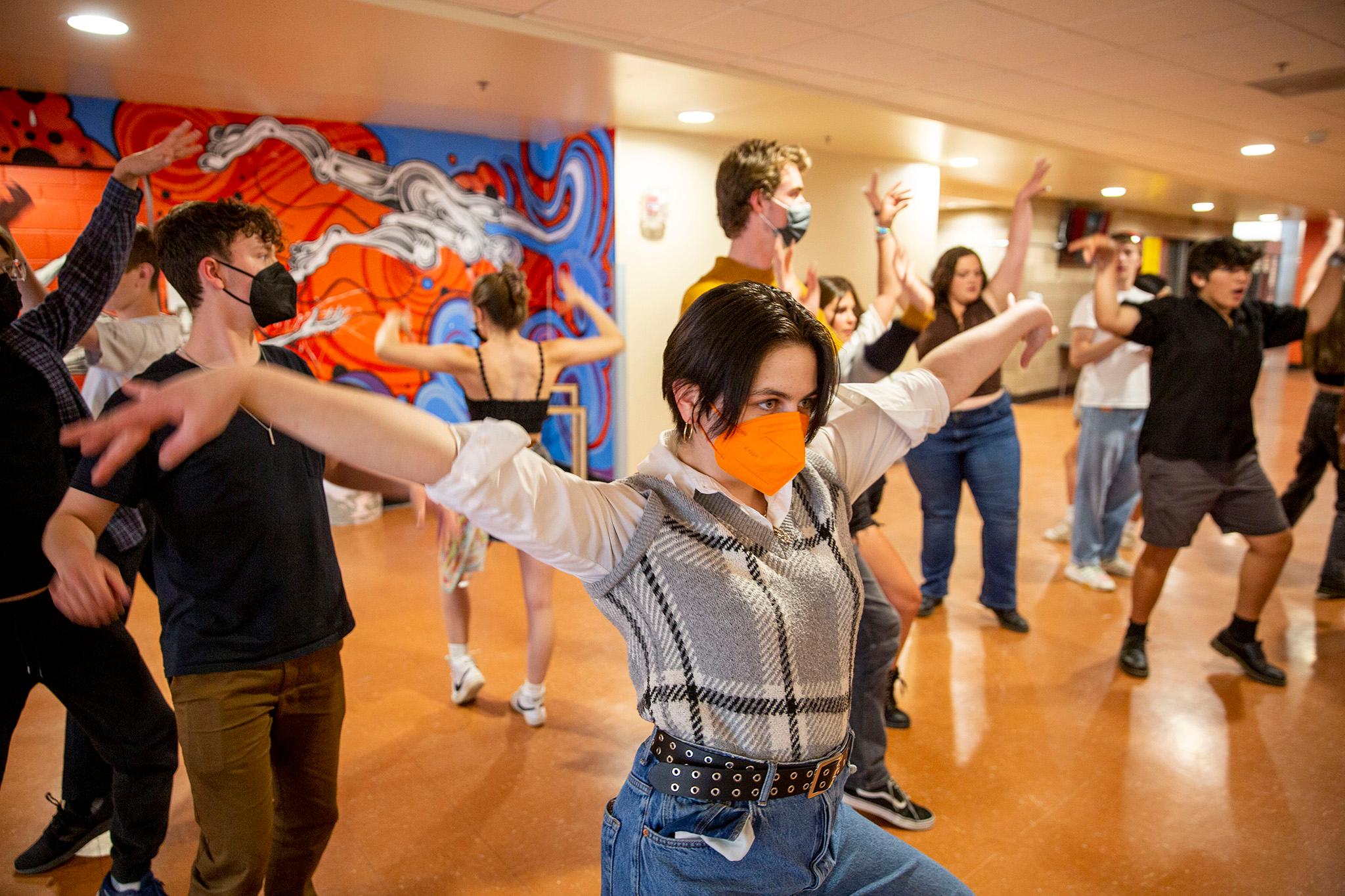
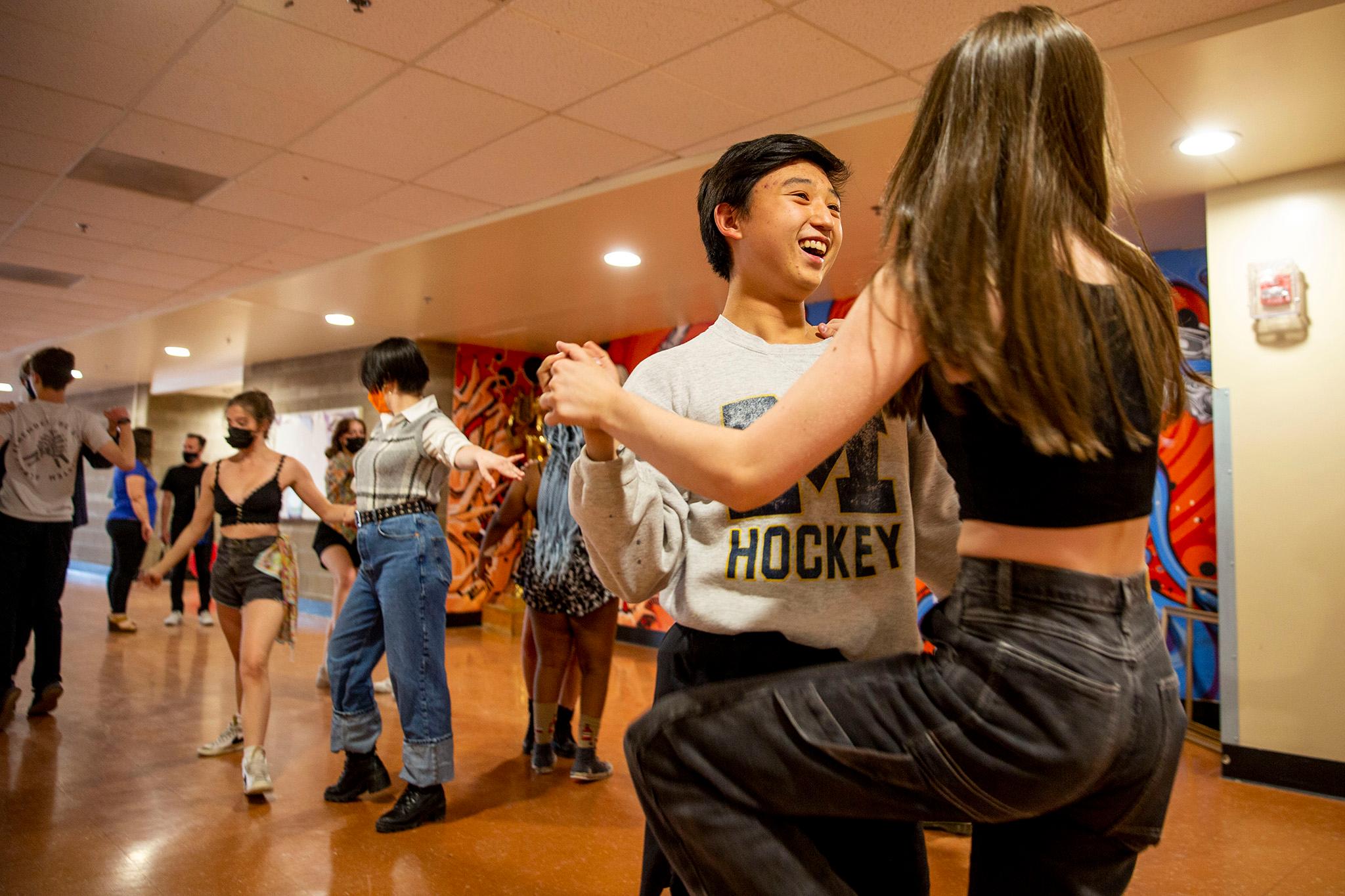
The show starts on an optimistic note, with the song "Wait 'Til You See What's Next."
"It's a very upbeat thing. And that's what kids right now are thinking -- wait till we see what's next for me for the future, you know, all the problems that grownups have created, wait till you see what we can do," Hann said. "We shift drastically into what I was hearing for my students -- all the isolation, the depression and the darkness that happened in those times."
Adison Keith, a sophomore at DSA, is one of the show's writers. She said the show is in large part about the students' collective experience of the last couple of years, explored primarily through a few key characters as focal points.
"We thought we could provide a really individual perspective to an international audience," she said. "It's about friendship throughout the pandemic and how the pandemic impacted our ability to process things and our friendships and how loneliness can bring people together. But it can also tear us apart."
She said the writing process was emotionally and logistically difficult. It involved boiling down everything from the last two years of her life, which still feels fresh.
"It feels like you're just like picking at a fresh wound," she said. "Trying to act like you're reflecting on an experience when it still feels like you're living in the intensity of it every single day, is really hard."
One of the play's story lines follows a character who gets sick with COVID and ends up in the ICU. Keith took ownership of that section, because her dad is an ICU nurse who worked with COVID patients every day. As part of her research, she had a long interview with her dad about his experiences in the ICU. The hospital scenes in the play reflect some of the very challenging experiences ICU nurses had or witnessed during the pandemic, when many of their patients died.
"I could tell the toll it took on him," Keith said. "I didn't even know my dad went through that."
Nicole Siegler is a freshman at DSA and an actor in the show. She also worked with the writers to help create her character, Crystal, a Black teenager trying to figure everything out. When COVID hits, Siegler says, Crystal's world is flipped upside down.
"She feels very alienated from her friends. And then you have things like George Floyd, Ahmaud Arbery, Breonna Taylor, all of those deaths that happened really close and recent to each other. kind of threw her for a loop," Siegler said. "She's learning patience with her friends, because she's the only Black or person of color in her friend group."
Throughout the play, audiences will see Crystal's frustration, anger and sadness as she grapples with all of that.
"At the end of the show, she's not come to peace with it, but kind of knows where she's going from there," Siegler said. "It's been a tough year of talking about some really hard topics. But I'm so grateful for them, because it's important, and people need to hear those stories. And we need to get used to telling them."
Siegler said the show has been an opportunity to heal and rebuild.
"COVID was just this whole whirlwind, and then you're just automatically thrown back into school and life," she said. "I can definitely put all my frustration and anger that I didn't get to necessarily cope and process with into the show.
" I'm taking away hope and healing because I kind of put that off. I procrastinated over everything that happened during COVID," she said. "Even though I didn't give myself the opportunity to just accept where I am and where everyone was during COVID, I'm letting Crystal have that opportunity."
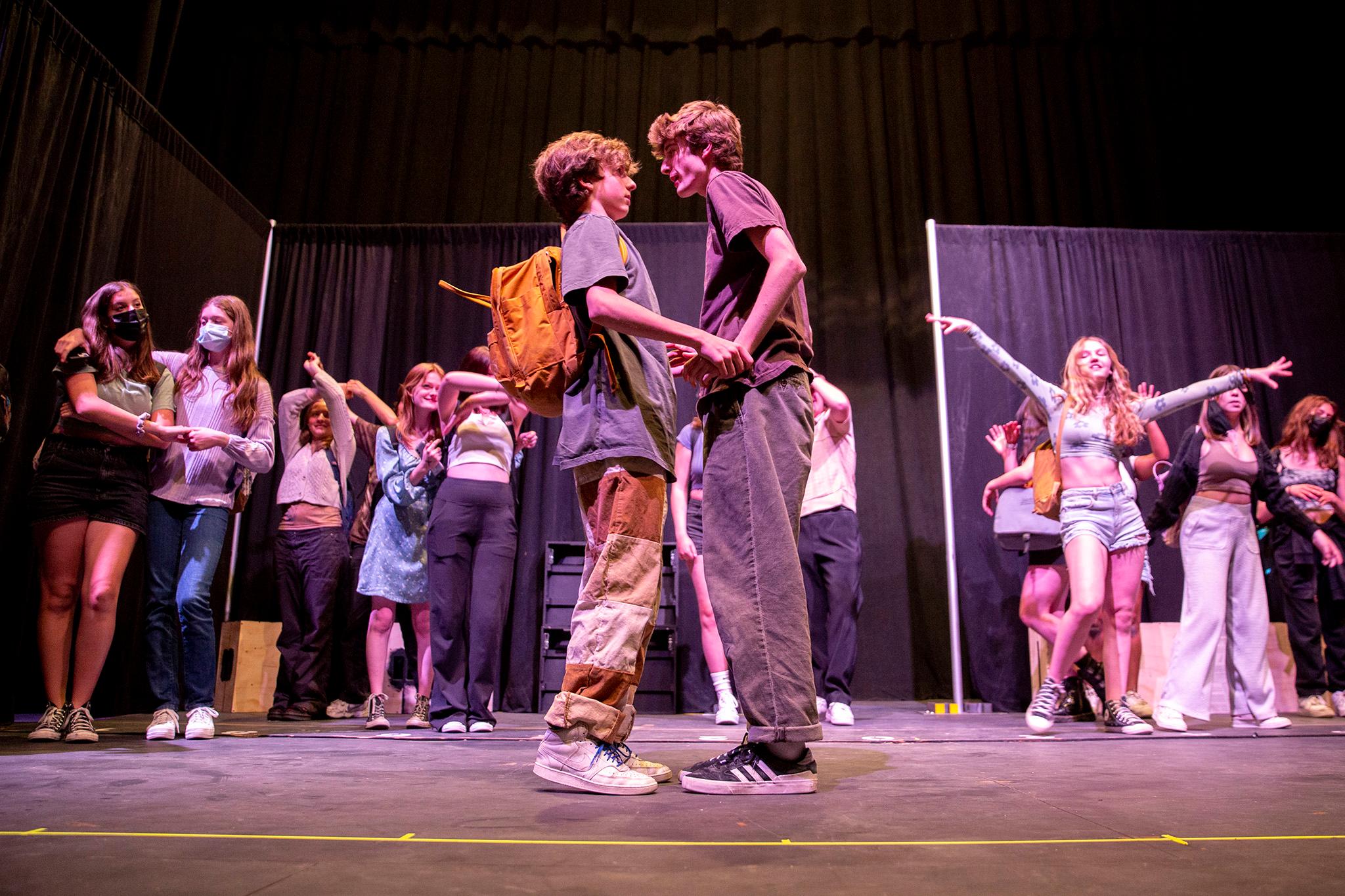
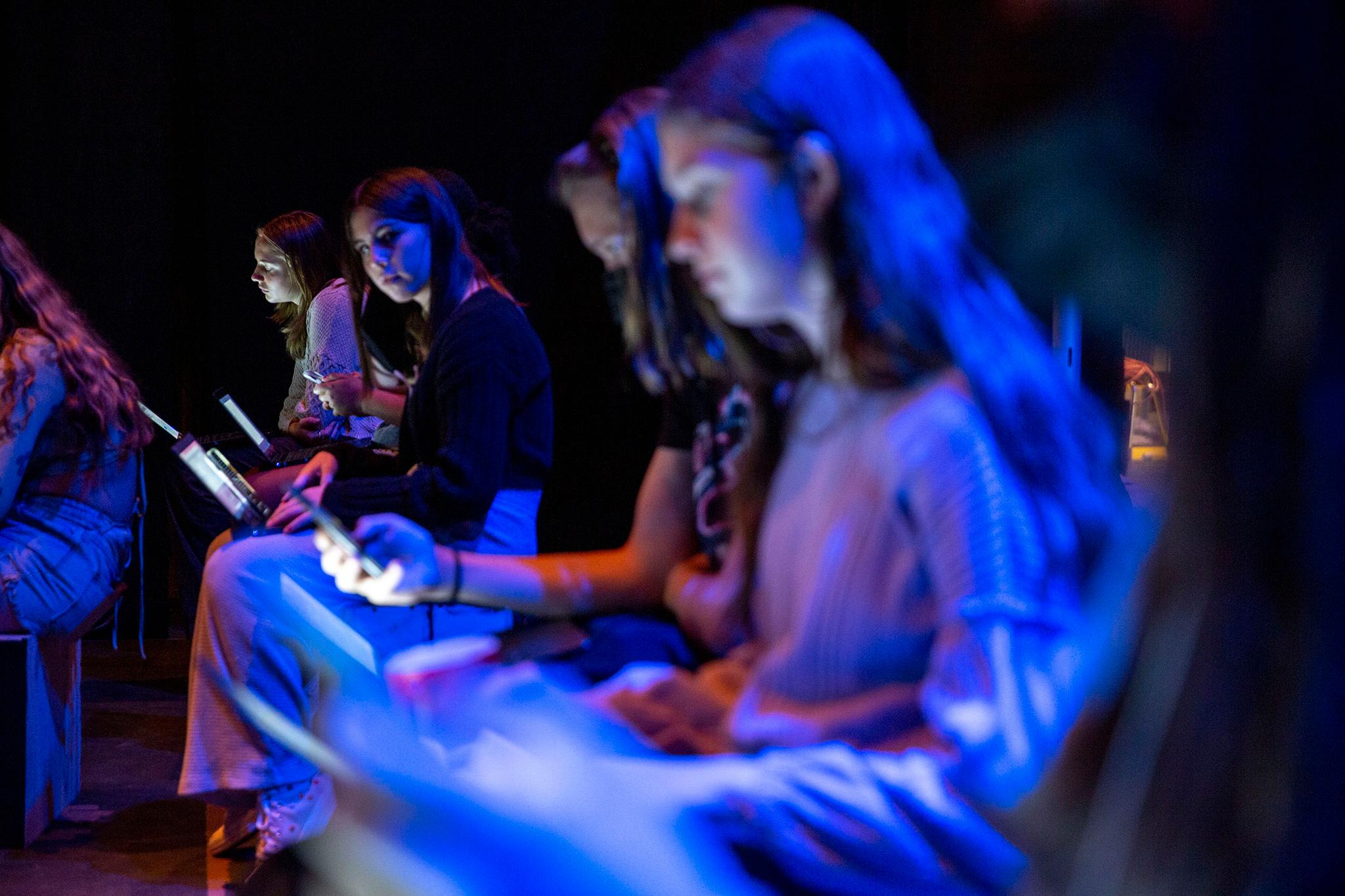
The show also introduces Jordan and Cassady, a gay couple who start dating early in the show. The story follows their relationship and personal struggles when Jordan, who has diabetes, gets COVID and ends up falling very ill.
Eighth grader Grayson Allensworth plays Jordan.
"Jordan is a fighter in all senses. He fought COVID," Allenswroth said. "He fights to keep his friendships alive. He fights to save the relationship with Cassidy when he can't even see him because of COVID.
"I want people to take away the fact that people are fighters," Allensworth continued. "And that's what we've done since the beginning of humanity. And even when everything is coming at you all at once, there's something better on the other side of it."
Allensworth says it has been incredibly cathartic to dive into all of these topics -- revisiting 2020 by looking at old photos, listening to Zoom recordings
"It helps me understand where I was, because I can definitely bring a lot of myself into this," Allensworth said. "Because everybody in this cast can relate to things that happen in here. Everybody that watches this is going to have something to relate to here."
The cast are excited - and nervous - to bring their very personal show to an international audience.
"I get a little bit of impostor syndrome about it," Keith said. "Like, I'm literally 16 years old. Do I deserve to be someone credited as a writer and an actor on something this big? And I think just like, realizing that, Yeah."
Siegler thinks the show will help audiences from all over the world understand what the U.S. has been going through.
"It's scary, but it's important to understand and learn from," Siegler said. "My philosophy is that l sometimes, you have to be frank and honest with people. And that truth and honesty can scare people. But I think it's really important to enact change in our world."
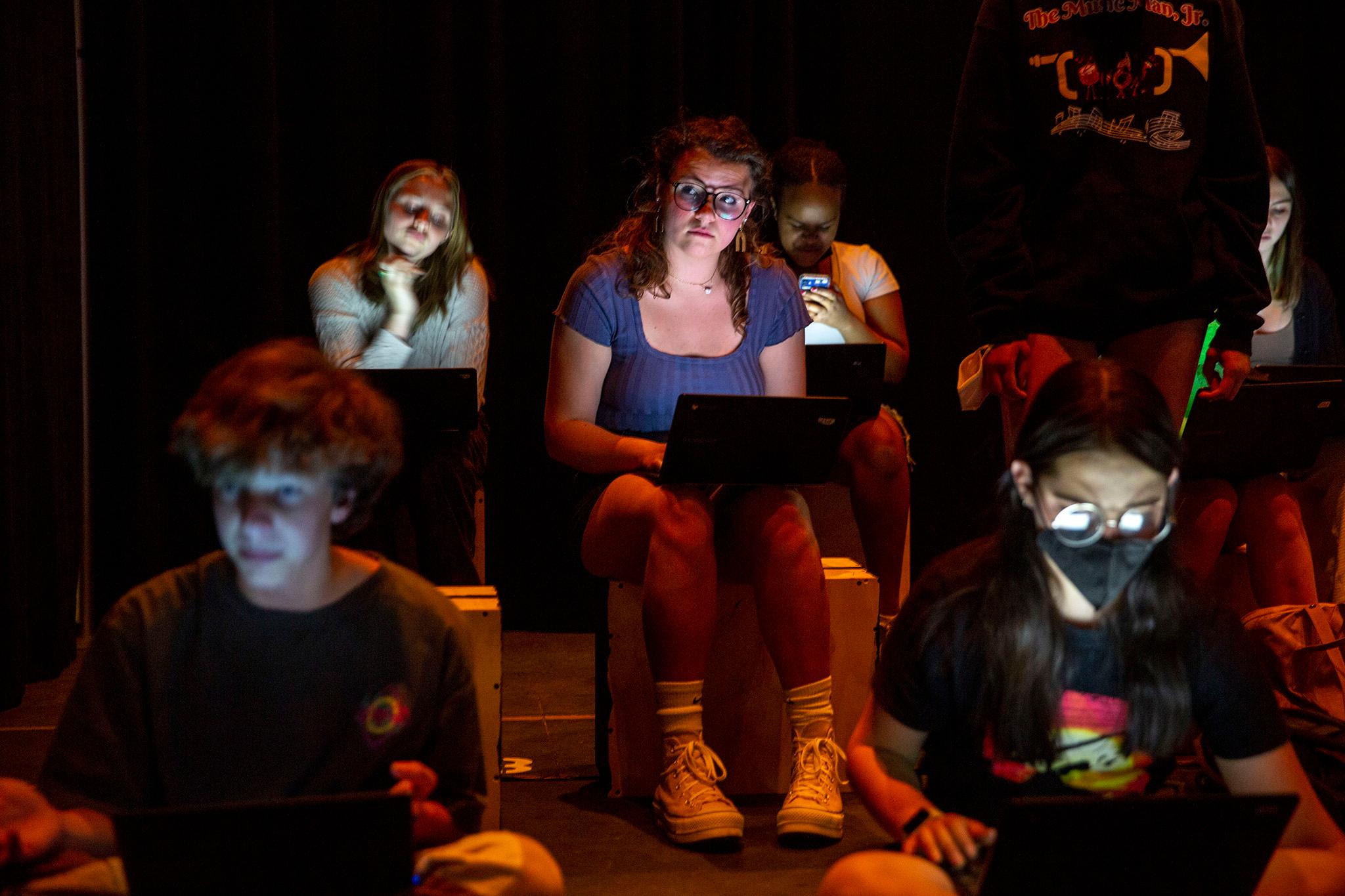
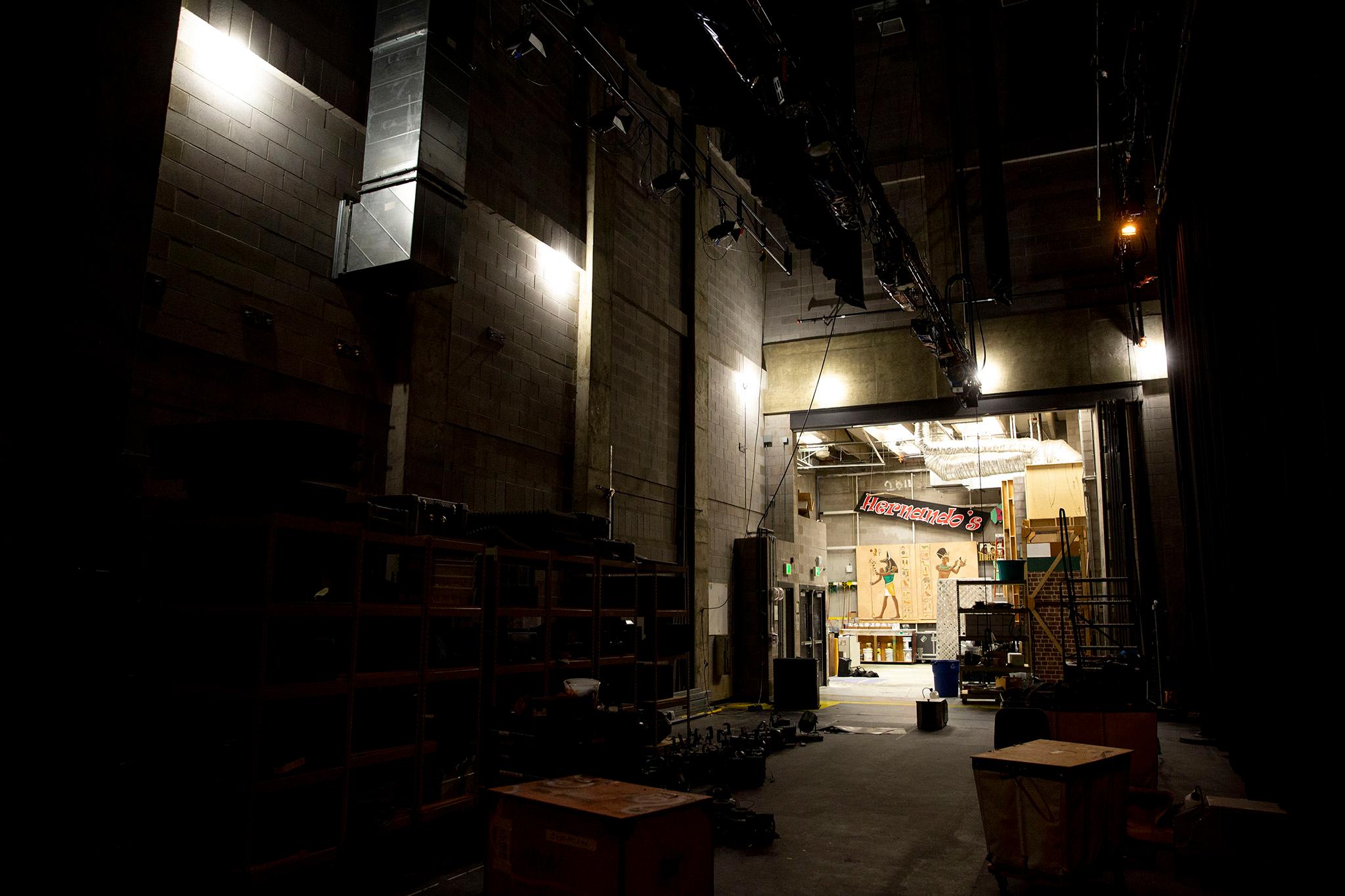
The show ends with a reprise of "Wait 'Til You See What's Next." If the first iteration of the song foreshadowed the pandemic and the difficulties to come, the reprise is hopeful in tone.
"We've been through all of this. This was terrible," Keith said. "And now we're gonna go forth into the world and have hope and excitement about what's going to happen."
For Hann, the reprise is also about what her students are capable of.
"As an audience member, I want to know that the next generation is ready to take that step, and sees issues, and sees solutions," Hann said. "That's what I'm hoping the audience will walk away with, that, wait 'til you see what's next. Because these kids are superstars, and they're so smart and passionate and focused, and they see a bigger picture than I ever imagined in high school."
Re:ACTION will premiere locally May 20 at Denver School of the Arts, at 6 and 7:45 p.m. Both performances are free to the public, though with a suggested donation of $10 to help cover the expense of the trip to Scotland.
